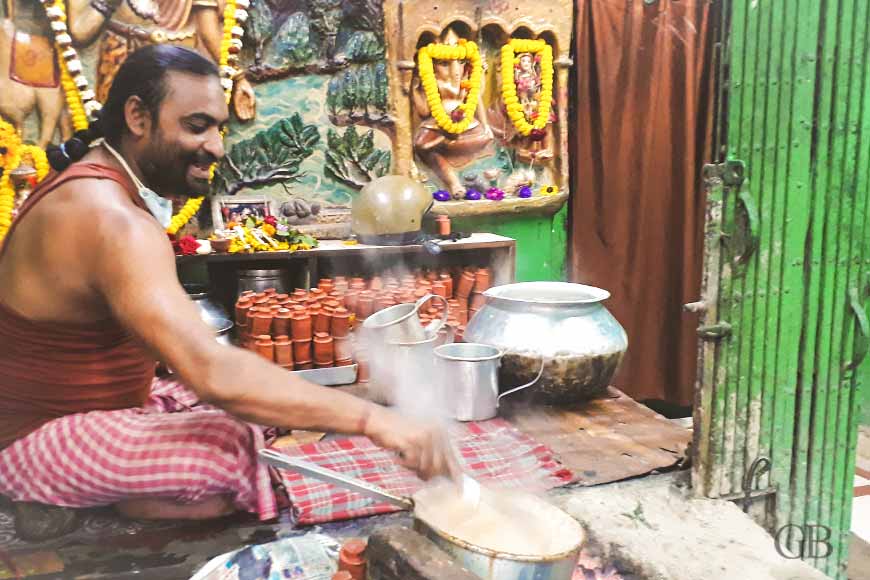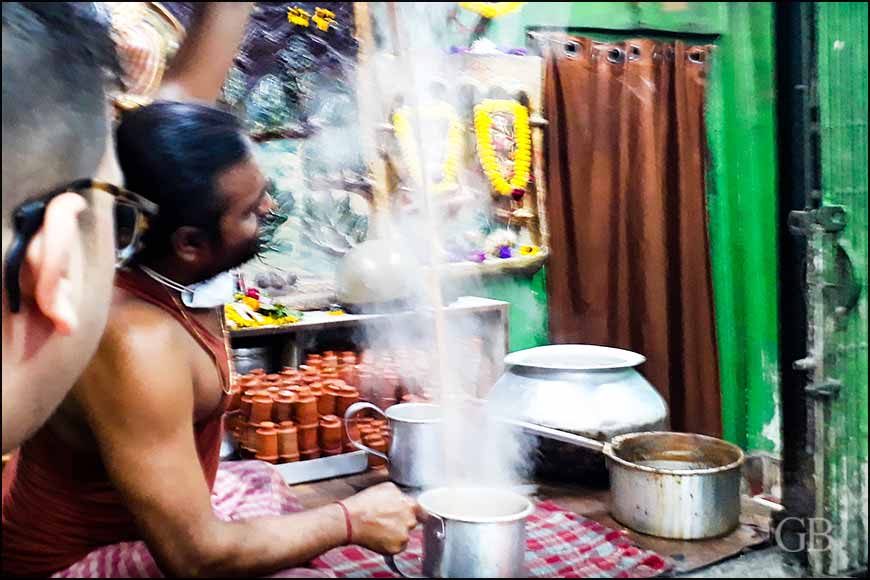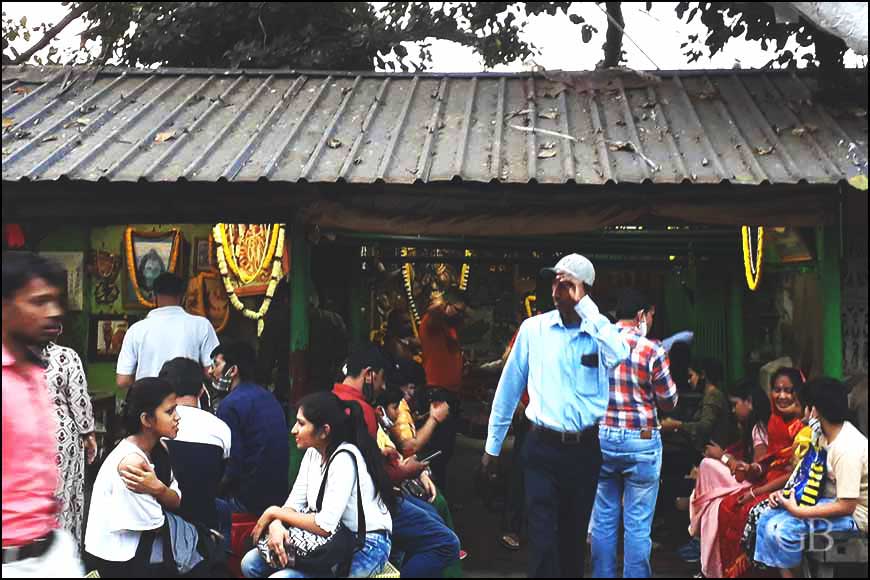Baba Bhootnath’s tea stall at Nimtala Ghat

As evening descends the skyline of Kolkata turns resplendent. The Hooghly River meanders slowly and shimmers like molten gold as the last rays of the setting sun fall on the water. Sound of temple bells and conch shells reverberate in the air against the river backdrop. The ghats usually get crowded at this hour by casual strollers, commuters or locals who head to the temples to join in the aarti and offer their evening prayers. After a laidback afternoon, the tea stalls on the banks suddenly become a flurry of activities. A large number of tea stalls have been operating in the vicinity of Nimtala Ghat for decades. But one particular shop owner is sure to attract the attention of any casual visitor. The man in saffron robes with several garlands of Rudraksha beads dangling from his neck is busy igniting the stove. If you are somewhere near the Bhootnath Dham temple and seek direction to ‘Sadhu Baba’s tea stall,’ locals will promptly show you the shop.

Harishankar’s life revolves around the tea stall and the temple. Shivdas was a devout sevayat (one devoted to the service of the temple) and pledged to assign each successive generation to continue service to the divine abode.
Hari Shankar Pandey aka Sadhu Baba, runs the tea shop now. He gets busy as customers begin to crowd the shop and sit on the plastic chairs laid out for them. Soon, a big crowd gathers and people wait patiently for their turn to be served. Meanwhile, Sadhu Baba pours tea leaves in the pan boiling with hot creamy milk. The best part of his tea is the milk. It’s from the cattle that he rears himself. The popularity of the shop is stupendous. There are a number of other tea shops nearby, yet people throng this shop to pay a premium for a cuppa and are happy to get their money’s worth here.
Hari Shankar Pandey aka Sadhu Baba, runs the tea shop now. He gets busy as customers begin to crowd the shop and sit on the plastic chairs laid out for them. Soon, a big crowd gathers and people wait patiently for their turn to be served.
Harishankar’s father was Shivdas Pandey and the family hails from a village near Patna in Bihar. Shivdas migrated to Calcutta in search of employment. This was during the British colonial rule and Calcutta was then the epicenter of all activities. Large number of people from Bihar and Odisha thronged the city looking for jobs and prospects of a better life. His father searched high and low for a decent job and took shelter at the Bhootnath temple and later decided to settle down in the temple complex. While staying there, he decided to distribute a cup of milk to each and every pilgrim who visited the temple or came for a bath at the ghat. But he soon discovered that Bengalis are not as fond of milk as they are of tea and thus he ventured to sell tea.
Also read : Kolkata’s only ‘Samovar’ Tea shop
Baba Bhootnath Dham stands besides the cremation ground at Nimtala Ghat. Not much is known about the origin of this temple but the 300-year-old tradition of Bhasmarti ritual is followed here daily. Lord Bhootnath is worshipped with the cremation ashes collected from the pyre nearby and not for a single day since the last three centuries has this ritual been stalled.

Harishankar’s life revolves around the tea stall and the temple. Shivdas was a devout sevayat (one devoted to the service of the temple) and pledged to assign each successive generation to continue service to the divine abode. This earned him the sobriquet of ‘Sadhu Baba.’ His shop is now intrinsically linked to Nimtala Ghat in north Kolkata.










